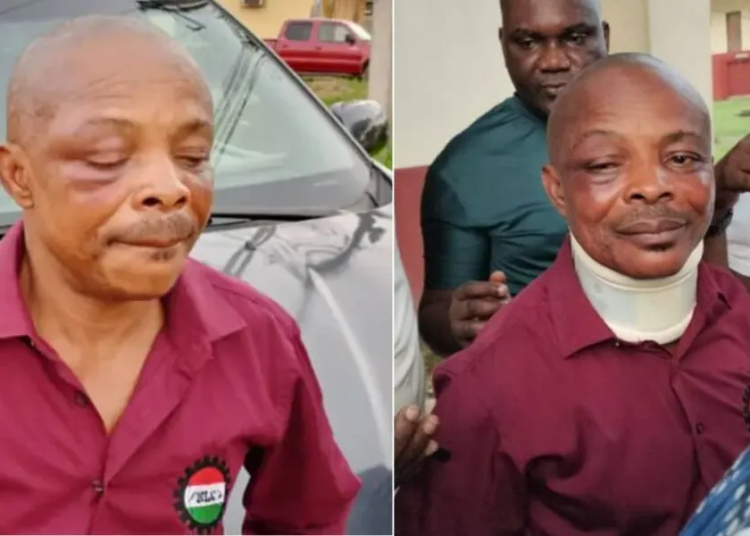Recently, ,the nation was astounded by the shocking news of the alleged abduction and brutalisation of the President of the Nigeria Labour Congress (NLC),Joe Ajaero .
This incident, involving the Nigerian police, has sparked outrage and raised serious questions about the conduct of the nation’s security agencies.
While allegations and counter-allegations abound, it is crucial to focus on the core issue at hand: the need for a reevaluation of the rules of engagement by the security forces.
The NLC revealed that Ajaero was admitted to the Federal Medical Centre in Owerri for treatment of wounds he sustained from the manhandling by the police.
The Imo State Police Command, on the other hand, denied arresting Ajaero, stating that he was taken into protective custody at the State Command Headquarters to protect him from potential harm. They claim that he was subsequently given treatment for his injuries at the Police Medical Services in Owerri.
The Imo State Government also distanced itself from the arrest of the NLC president, with the Commissioner for Information and Strategy, Hon. Declan Emelumba, asserting that those accusing the government were merely “mischief makers” and that the purported strike in the state had been stopped by the National Industrial Court in Owerri, rendering the planned action illegal.
Amidst these conflicting accounts, one undeniable fact emerges – the pictures released of Ajaero show that he was indeed brutalised.
As a newspaper, we unequivocally condemn such acts of brutality by security agencies against any citizen. This incident brings to the fore the extrajudicial inclinations of the security agencies whose duty it is to protect life and property. Instead, they, at drop of a hat, indulge in acts not in consonance with due process.
It is distressing that some members of the security forces act in ways that suggest that their uniforms place them above the law. They perceive the uniform as a license to harass and intimidate civilians. This is a deeply troubling trend that needs to be addressed urgently.
We cannot forget the events of the EndSars protest in 2020, which was ignited by police brutality. Since then, we have witnessed continued cases of police killings and brutality, indicating that the problem has not been fully addressed.
It is gratifying to note that President Bola Tinubu has taken the initiative to set up a committee for police reforms. This is a crucial step in the right direction, and it is imperative that the committee operates effectively to bring about meaningful change.
In our perspective, it is essential for the office of the Inspector General of Police to conduct a thorough investigation into the Ajaero case. Any police officer found to be responsible for brutalising him should be prosecuted and held accountable for their actions. It is high time that we send a strong message that brutalisation of citizens by security agencies has no place in a civilized society.
Reforming our security agencies is not just an option; it is a necessity. We need to establish clear rules of engagement, enhance accountability, and ensure that the rights and dignity of every citizen are respected. It is the duty of our security agencies to protect and serve the people, not to terrorize or harm them.
In addition to the specific incident involving Ajaero, there is a broader issue that needs to be addressed. Our security agencies must undergo comprehensive training in human rights and ethical conduct. They should understand that their primary role is to safeguard the lives and property of the citizens, not to be instruments of fear and intimidation.
We call on civil society organisations, human rights activists, and concerned citizens to join in the demand for justice and accountability in this case. The public’s voice must be heard, and those identified as having played a role in that act of brutality must be made to face the wrath of the law.
The brutalisation of Joe Ajaero serves as a stark reminder that there is much work to be done to reform our security agencies and ensure that they uphold the highest standards of professionalism and respect for human rights. It is not just a matter of one individual but a reflection of the larger issues within our law enforcement system.
We must act decisively to bring about the necessary changes to prevent such incidents from happening again. In the meantime, Joe Ajaero deserves justice
Consequently, this unfortunate incident ought to be a catalyst for meaningful reform of the security agencies. The time for change is now, and we must hold our institutions accountable to ensure that the brutalisation of citizens has no place in our society.
We are disturbed that this Ajaero’s case may present a case against state police.





